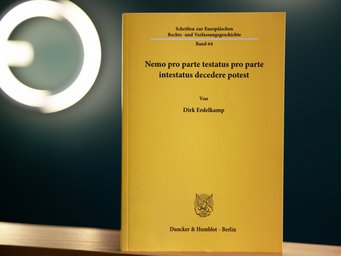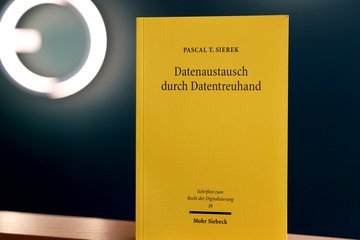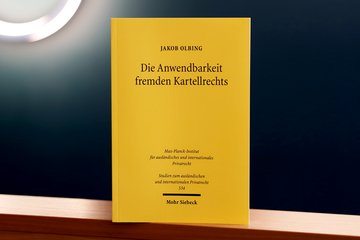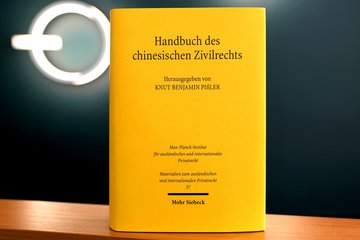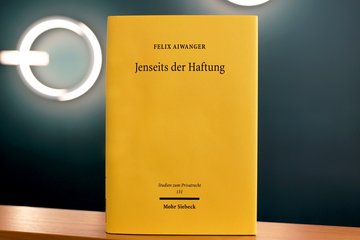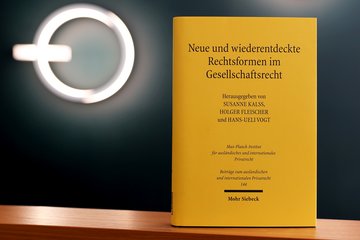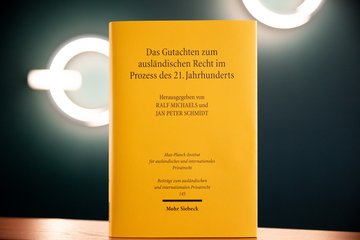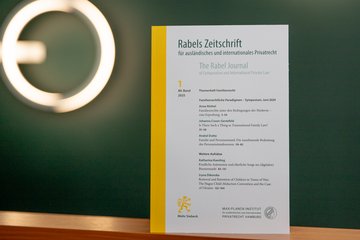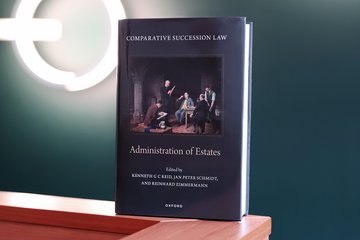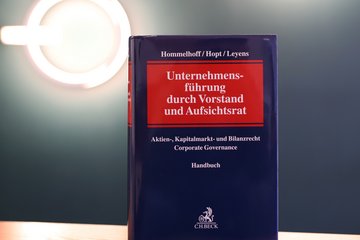Nemo pro parte testatus pro parte intestatus decedere potest
The precept that no person can dispose of some of their assets in a will while letting the rest pass under the laws of intestacy was one of the quirks of Roman succession law that made the least sense to scholars of later periods. In his dissertation, former research associate at the Institute Dirk Erdelkamp travels through contemporary history in pursuit of the nemo pro parte principle from its emergence and later reception to its present manifestations.
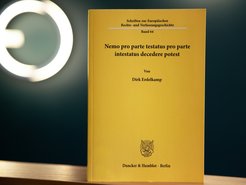
The main focus of the work is on the historical reception of the nemo pro parte principle from the jus commune to the modern codifications. Erdelkamp then addresses the numerous theories put forward by generations of scholars to support the principle and juxtaposes these against modern-day German succession law. He delves into the kinds of cases in which the nemo pro parte principle could theoretically operate and contrasts the outcomes it would produce with the actual decisions of German courts. He concludes that it isn’t tenable to maintain that the nemo pro parte principle by itself would always produce inequitable outcomes or be contrary to the will of the deceased. Ultimately, Erdelkamp observes that despite its rigidity, the nemo pro parte principle avoided the systematic ambiguities and the sometimes hardly predictable outcomes that characterize the highly individual court decisions in modern German succession law.
Dr Dirk Erdelkamp studied law at Bucerius Law School. He was a research associate at the Institute from 2019 to 2023. He completed his doctoral studies at Bucerius Law School in 2023.
Image: © Max Planck Institute for Comparative and International Private Law / Bastian Kurzynsky
